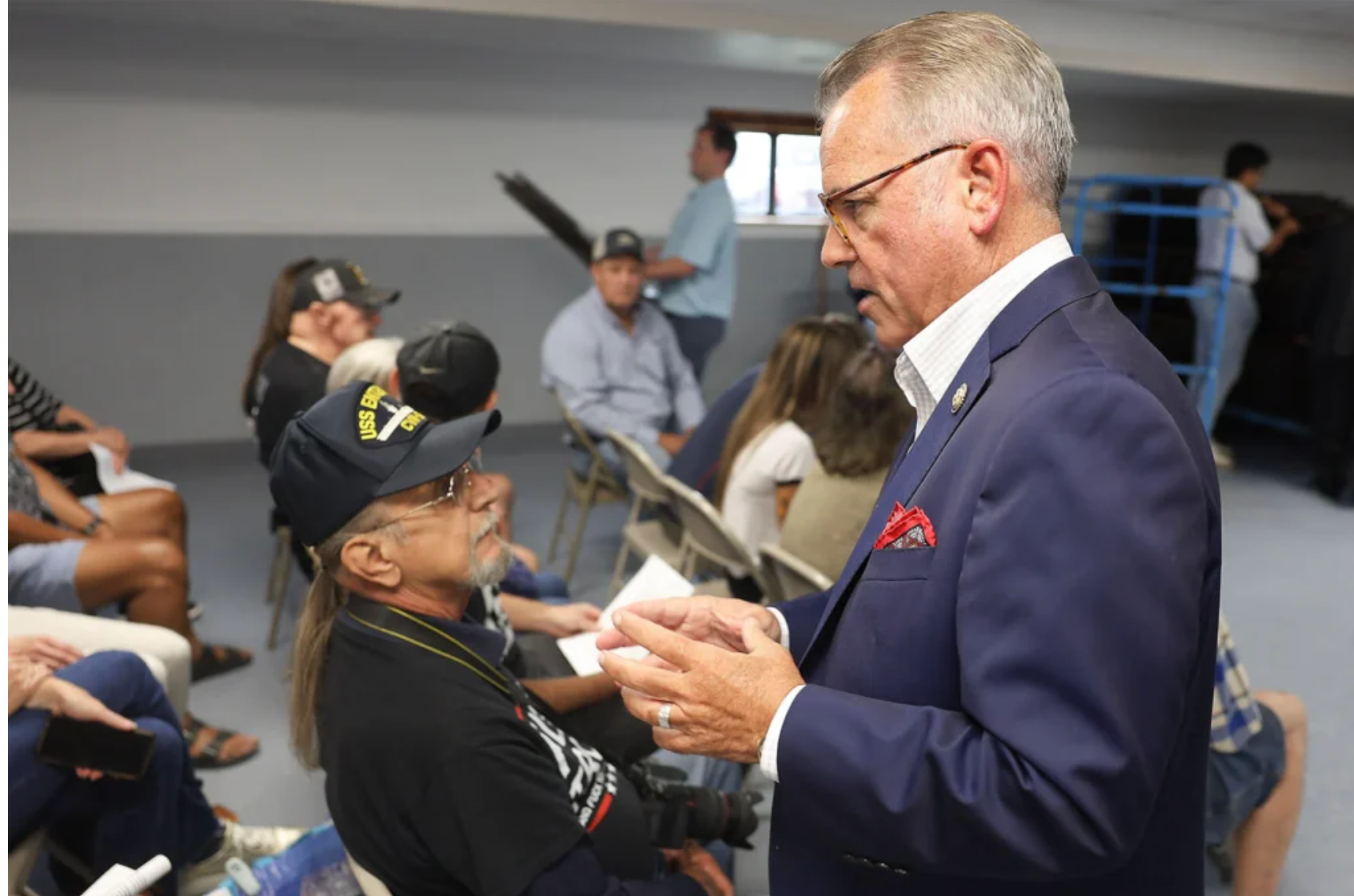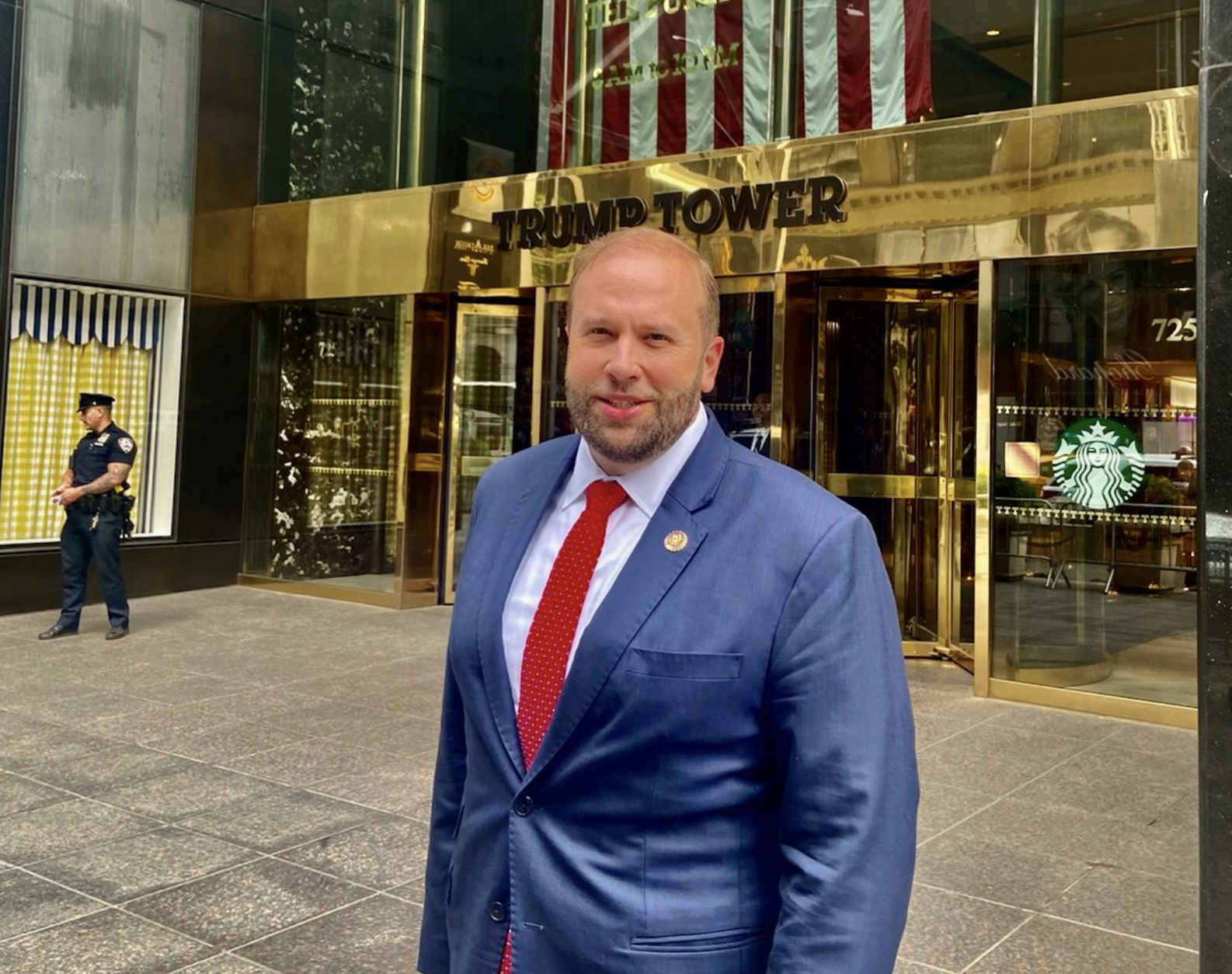
The rarely used maneuver in the U.S. House will get its 218th signature — enough to force a vote — when a new member from Arizona is sworn in. Of Missouri’s six Republicans, only Rep. Mark Alford has said he will vote for the bill if it comes to the floor
BY: RUDI KELLER
Missouri Independent
The last signature needed to force a vote in the U.S. House of Representatives to release files related to the late sex offender Jeffrey Epstein will arrive in Washington this week, but most Republican members of the Missouri delegation are silent on how they will vote.
On Tuesday, voters in Arizona elected Adelita Grijvala to Congress to fill a seat vacant following the death of her father, Raúl Grijalva. Both Grijvala, a Democrat, and her Republican opponent had said they would sign a discharge petition to force the House vote.
The petition needs 218 signatures — a majority of the House — to bring a resolution sponsored by U.S. Rep. Thomas Massie, a Kentucky Republican, to the floor. The resolution would lead to a vote on a bill requiring the Department of Justice to “publicly disclose all unclassified records, documents, communications, and investigative materials in its possession that relate to Epstein or Ghislaine Maxwell,” Epstein’s longtime associate now being held in federal prison.
So far the petition, which Massie co-sponsored with U.S. Rep. Ro Khanna, a California Democrat, has 217 signatures — every Democrat in the House, including U.S. Reps. Emanuel Cleaver of Kansas City and Wesley Bell of St. Louis — and four Republicans.

Only U.S. Rep. Mark Alford of Raymore among Missouri’s six Republicans told The Independent how he would vote for the measure if it makes it to the House floor. While he opposes the discharge petition, he said, if the bill it seeks to advance comes up for a vote, he will support it.
“The Epstein case has cast a long shadow over our institutions, fueling distrust among Americans,” Alford said in a statement sent by email. “By releasing the files, we can begin to ensure justice for the victims and restore faith in our criminal justice system. Transparency is not a partisan issue; it’s a moral one.”
Alford said he was opposed to the discharge petition because it doesn’t allow for measured consideration of legislation.
“The discharge petition process bypasses regular order, skips the committee process, and prevents the people’s elected representatives from having a say until an up or down floor vote—that’s wrong and is not how our legislature should operate,” Alford said.
The only other Republican member of the Missouri delegation to respond to an inquiry about the discharge petition was U.S. Rep. Ann Wagner of Ballwin. Her emailed statement did not say whether she would vote for the measure if it reaches the floor or why she had not signed the petition.
“As I have strongly stated previously, Jeffrey Epstein was evil and I hope he rots in hell for what he did to so many innocent children,” Wagner said. “I have called for total transparency, to the extent the courts will allow, and ensuring victims are always protected.”
Wagner said she has voted in favor of investigations by the House Oversight Committee and that has already resulted in the release of thousands of documents.
“Any criminal activity must be prosecuted to the fullest extent of the law,” Wagner said.
Seven days after the 218th signature is recorded on the discharge petition, any member who signed can call for House Speaker Mike Johnson to schedule a vote on the petition, which must come within two days.
The tumult over releasing records related to the Epstein investigation has created turmoil in Congress all summer. His death in 2019 in a New York City jail cell while awaiting trial on federal charges for sex trafficking minors has become the focus of many of the questions surrounding the case.
In 2007, a plea deal with then-federal prosecutor Alexander Acosta, who went on to be secretary of labor in the first Trump administration, ended an FBI investigation into Epstein. He was accused, the Miami Herald reported in 2018, “of assembling a large, cult-like network of underage girls — with the help of young female recruiters — to coerce into having sex acts behind the walls of his opulent waterfront mansion.”
Epstein pleaded guilty in 2008 in Florida for procuring and soliciting minors for sex, and served about 13 months in jail under a work release arrangement.
President Donald Trump and his supporters, including some now working in his administration, dealt in conspiracy theories for years on the information surrounding the Epstein case, including whose names turned up during the investigation and the circumstances of his death.
The clamor for more transparency in the case, especially about Trump’s friendship with Epstein, has resulted in various attempts by Republican leaders in Congress to keep a lid on rebellious members.
In July, Johnson, the house speaker, sent members home early for their August break because of the pressure to release the files.
And at home in Kentucky, Massie told reporters he and the other three Republicans who signed the discharge petition are being pressured to remove their names following the election of Grijvala.
Johnson and “some of the powers that be in DC are in full panic right now” about it, Massie said, according to reporting by Semafor.
The other Republicans who have signed are U.S. Reps. Nancy Mace of South Carolina, Lauren Boebert of Colorado and Marjorie Taylor Greene of Georgia.
“They asked some of my colleagues who are co-signers,” Massie said. “And they actually threatened them politically, not physically.”
Among the Missouri delegation, The Independent did not receive responses from the offices of U.S. Reps. Sam Graves of Tarkio, Jason Smith of Cape Girardeau, Bob Onder of Lake St. Louis or Eric Burlison of Springfield.
The Independent could not find any sources for statements by Graves at any time on the Epstein files.

Smith, in a statement reported by KRCG in July, said more documents should be unsealed.
“The more transparency we can have the better,” Smith said.
In a July panel discussion on right-wing news outlet Real America’s Voice, Onder said the delays in releasing full details of the Epstein investigation are a symptom of “this idea that ‘deep state’ insiders control the levers of power.”
Epstein used influence to escape justice, Onder said.
“I think it’s very much the question of whether, if you’re wealthy enough, powerful enough, well-connected enough, you can get away with anything,” Onder said.








